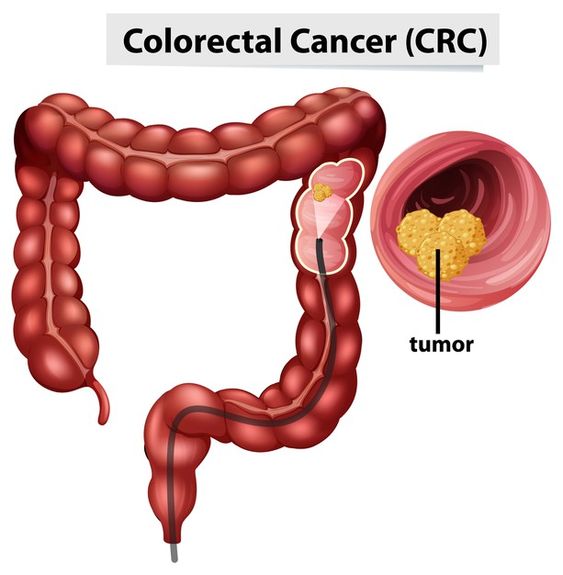Colorectal cancer is colorectal cancer, including colon cancer and rectal cancer. It is also one of the more common malignant tumors in the world. According to the World Cancer Epidemiological Survey, the incidence of colorectal cancer in North America, Western Europe, Australia, and other developed countries and regions The incidence and mortality of colorectal cancer rank second among all malignant tumors. In addition to ethnic genetic factors, lifestyles such as eating habits and dietary structure are also important factors leading to colorectal cancer.
What is colon cancer?
The large intestine has a total length of about 1.5 meters and is divided into three parts: the cecum, the colon, and the rectum. The colon is further divided into the ascending colon, transverse colon, descending colon, and sigmoid colon. Colorectal cancer is a malignant tumor that occurs in the large intestine. 70% of bowel cancer occurs in the rectum. In recent years, the proportion of rectal cancer has gradually decreased, while the proportion of right colon cancer has gradually increased.
Compared with other tumors, colorectal cancer has a good prognosis and is easy to detect and cure early. The 5-year survival rate of patients after treatment is as high as 90%. It was originally a very inconspicuous adenomatous intestinal polyp, which evolved after 5-15 years. If cancer can be detected and removed before it becomes cancerous, tragedies can be avoided.
Does colorectal cancer have any symptoms?

Gastrointestinal tumors have fewer symptoms in the early stage (so it is difficult for the tumor to be self-discovered in the early stage), but colorectal cancer grows on the colorectal mucosa, and some problems may be found through feces at a relatively early stage. There may be polyps or tumors in the intestine, which may not be found, because there may be no symptoms, especially in the early stage, so it is very important to screen for colorectal cancer. Colorectal cancer often does not have any symptoms in the early stage, and symptoms in the middle and late stages may include:
(1) bloody stool
(2) Changes in stool properties
(3) Changes in bowel habits
(4) Unexplained weight loss
Of course, these symptoms may also be caused by other causes, so it is necessary to see a doctor as soon as possible to find out the cause.
Which group of people is at risk for colorectal cancer?
For people over the age of 50, the older the age, the greater the risk.
(1) There is a genetic (ie, parent, child, half-sibling) history of bowel cancer.
(2) Long-term history of smoking and alcohol, chronic diarrhea, constipation, and history of blood in the stool.
(3) Schistosomiasis, history of appendectomy, chronic appendicitis.
(4) People who like high-protein, high-fat food, are sedentary and lack exercise.
(5) Long history of inflammatory bowel disease.
What checks should be done?
Colorectal cancer is a very preventable cancer. It takes ten years from polyp to cancer. As long as regular colonoscopy is still very easy to prevent, colonoscopy is the most effective means of diagnosing colorectal diseases, especially colorectal cancer and colorectal precancerous lesions. It is safe, intuitive, high-definition, and capable of filming and biopsy.
How can we scientifically prevent colorectal cancer?
1. In terms of eating habits, we require a reasonable mix of food, eat more foods rich in dietary fiber and coarse grains, and reduce alcohol consumption and fatty foods. Eat less fried, baked, smoked, and pickled foods. Minimize the intake of fried and roasted red meat (pigs, sheep, cattle, etc.).
2. Exercise more and control your weight.
3. Defecate regularly every day and develop regular bowel habits.
4. Participate in screening regularly, and do a colonoscopy when the high-risk group is determined by preliminary screening, so as to detect precancerous lesions in time.
For more information on Innomed® Medical consumables manufacturers, refer to the previous articles. If you have customized needs, you are welcome to contact us; we will serve you wholeheartedly.
At Longterm Medical, we transform this data by innovating and developing products that make life easier for those who need loving care.
Editor: kiki Jia
Date: January 5, 2022

 English
English عربى
عربى Español
Español русский
русский 中文简体
中文简体








